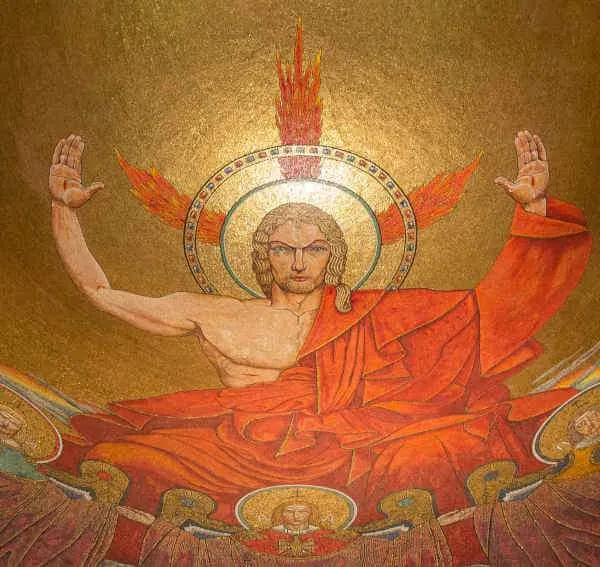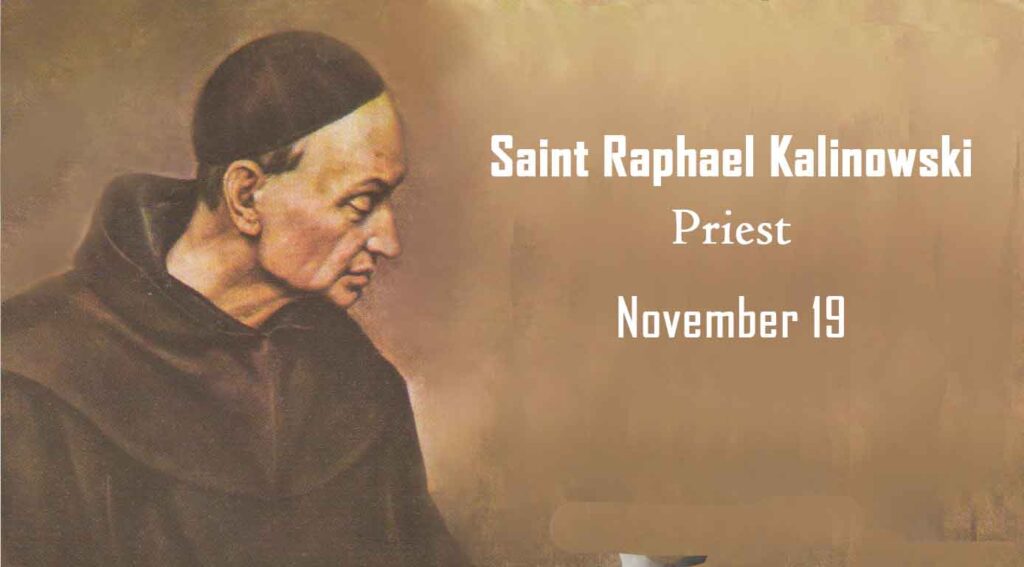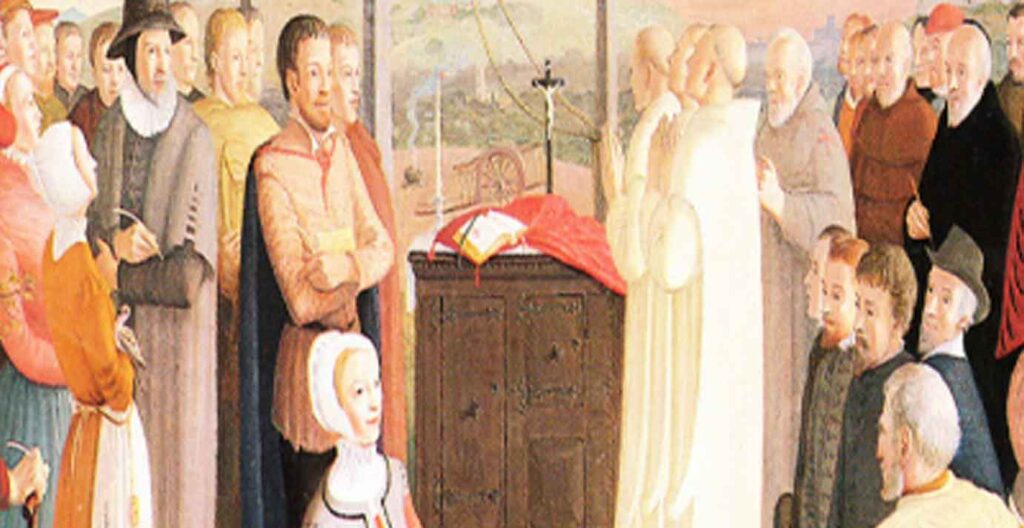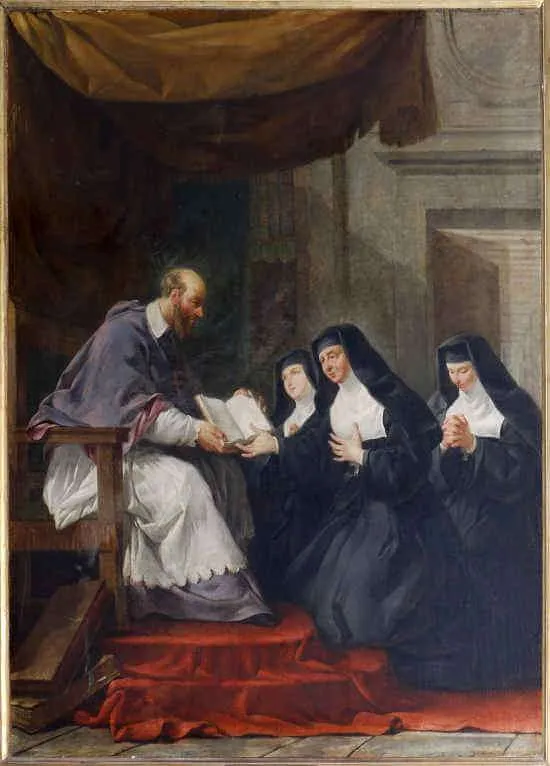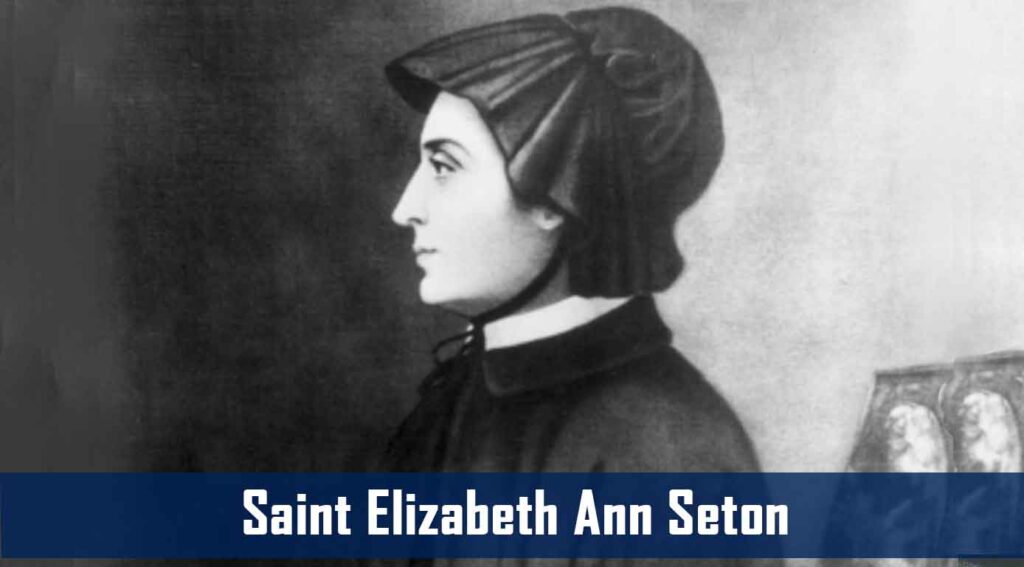Last Sunday in Ordinary Time
Our liturgical year is ordered in such a way as to lead us through the entire mystery of salvation won for us in Christ. Each liturgical year begins with Advent, when we ponder the Incarnation that leads us to the celebration of Jesus’ birth at Christmas. Following Christmas we enter into the public ministry of Christ during Ordinary Time, which begins with the feast of His Baptism. In the midst of Ordinary Time, we enter the deepest paschal mystery of Lent and Easter, culminating with the Triduum of Holy Thursday, Good Friday, and Easter Sunday. The Easter Season concludes with Christ’s Ascension and Pentecost, the beginning of the Church. Finally, after the rest of Ordinary Time, we come to the great Solemnity of Our Lord Jesus Christ, King of the Universe, commonly referred to as the Feast of Christ the King.
The liturgical feast of Christ the King was added to the Church calendar in 1925, when Pope Pius XI instituted it with his encyclical Quas Primas. The eschatological event it celebrates has been in the mind and heart of the Blessed Trinity from before the beginning of time and was clearly proclaimed by Jesus in His public ministry. At the time Pope Pius XI instituted it, the world was in political and social chaos. After World War I ended in 1918, secularism began to grow worldwide, and communist and fascist ideologies emerged, leading many to question and even abandon their faith. The unity of faith and civil governance, which had been part of the make-up of Europe since the fourth century, slowly crumbled, and God’s sovereignty over the world was readily dismissed. Though the concept of the separation of the Church and State can be helpful to both the Church and the State, if God’s authority and laws are excluded from human governance, man is left to his own designs and inevitably goes astray.
Upon seeing the social and political culture of the 1920s devolve, Pope Pius XI felt that he needed to remind the Church and the world that there is only one King, and that King is not only the King of Catholics, He is the King of humanity, of the entire Universe. In his encyclical letter, Pope Pius quotes Pope Leo XIII who said in his encyclical on the Sacred Heart, Annum Sacrum, “[Christ’s] empire includes not only Catholic nations, not only baptized persons…but also all those who are outside the Christian faith; so that truly the whole of mankind is subject to the power of Jesus Christ.” Pope Pius XI goes on to say, “Nor is there any difference in this matter between the individual and the family or the State; for all men, whether collectively or individually, are under the dominion of Christ. In him is the salvation of the individual, in him is the salvation of society” (Quas Primas #18).
When Jesus walked the earth, He chose not to forcibly impose His divine authority and rule upon nations, even though many of His followers wanted Him to do so. Instead, He instituted the Kingdom of God as a spiritual reality in which we are all called to voluntarily participate, for now. Those who do participate are called to work to establish Christ’s Kingdom on earth, here and now, by governing according to the mind and will of God. The modern-day concept of the separation of Church and State is helpful insofar as the Church must be free from political interference and control. However, this separation should never lead to an exclusion of the King of the Universe from human governance. Rather, human beings must give themselves over to the control and dominion of the Great King, and then govern according to His mind and will. Pope Pius XI goes on to say, “When once men recognize, both in private and in public life, that Christ is King, society will at last receive the great blessings of real liberty, well-ordered discipline, peace and harmony. Our Lord’s regal office invests the human authority of princes and rulers with a religious significance; it ennobles the citizen’s duty of obedience” (#19).
Moving beyond the role Christ has in the governance of the Universe and humanity, this feast also reminds us that in order for Christ to truly reign as King, He must first govern each and every soul. Jesus is not only the Savior of mankind, He is also the model of Christian living. He Himself said, “I came down from heaven not to do my own will but the will of the one who sent me” (John 6:38). Just as the Son of God did His Father’s will while on the earth, so must we. Christ will reign as King of our lives only when we say those words with Him, by the power of grace that He infused into human nature. We cannot do our own will, but the will of the Father in Heaven. God’s governance of our lives requires complete obedience to His commands because His commands are perfect, true, and lead us to the fulfillment of human life. Only in Christ do we find peace, unity, harmony, and true purpose.
Furthermore, the ideal society will only become a reality if every individual is governed by the will of God. The more that happens, the more society as a whole will share in the Kingdom of God. The individual’s or society’s refusal to obey God will lead only to a participation in the kingdom of satan. Hence, we should see the institution of this feast in 1925 as both an invitation to share in God’s Kingdom on earth and as a warning that the secular, communist, and fascist ideologies that were emerging were leading the world toward satan’s kingdom. The same is true of our day and age in another way, especially as we see secularism growing.
The final and most glorious aspect of today’s feast points us to the end of time when Jesus, the great King, will return in all His splendor and glory to establish His unending Kingdom on earth, when He unites Heaven and earth into the new and resurrected Kingdom yet to come. On that day, Christ “will come again in glory to judge the living and the dead and his kingdom will have no end,” and we will all share in “the resurrection of the dead and the life of the world to come” (Nicene Creed). Sadly, this new and eternal Kingdom of Christ is often ignored.
As we celebrate this glorious solemnity, the last Sunday of the Church’s liturgical year, deepen your faith in the mystery it celebrates, and strengthen your resolve to embrace the Kingship of Christ in your life, so that through you, His Kingdom will become all the more present in the world all around you.
Source: https://mycatholic.life/saints/saints-of-the-liturgical-year/our-lord-jesus-christ-king-of-the-universe–solemnity/

